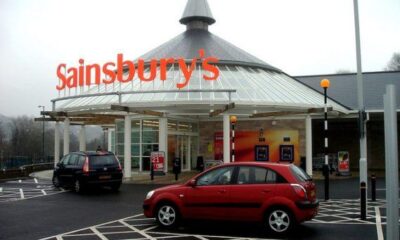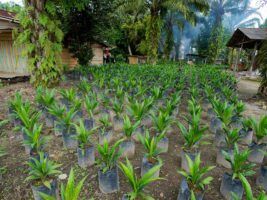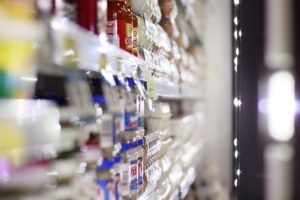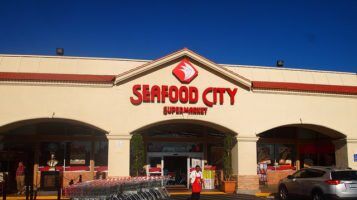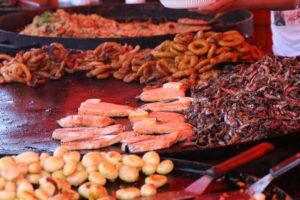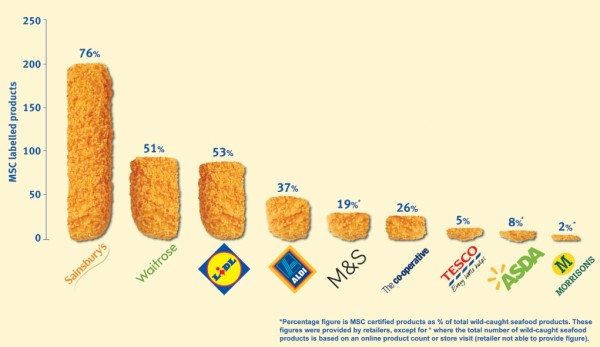
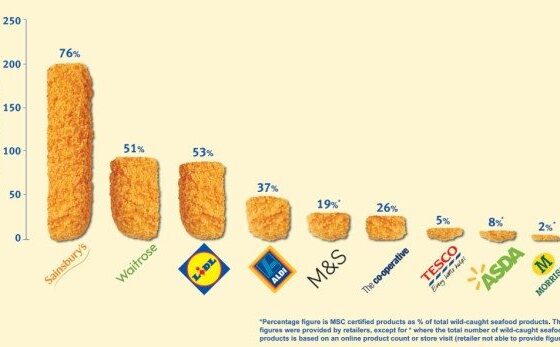
Economy
Just 2% of Morrisons’ Wild-Caught Seafood Certified Sustainable
New figures from the Marine Stewardship Council (MSC) show that discount supermarket, Lidl has more than doubled its range of sustainably sourced seafood over the last year to become the UK’s third largest retailer of MSC certified produce, behind Sainsbury’s and Waitrose, who have also strengthened their sustainable seafood offer. By comparison, just 2% of the wild-caught seafood sold by Morrisons has been independently certified as sustainable by the MSC.
Independent consumer research shows that more than two thirds of UK shoppers believe it’s important for supermarkets to sell sustainably caught seafood, and consumers are more likely to trust independent ecolabels than brands’ own sustainability claims. Yet three of the UK’s biggest supermarkets – Asda, Morrisons and Tesco – along with M&S, sell fewer MSC certified seafood products now than they did a year ago.

Sainsbury’s remains the UK’s biggest retailer of MSC certified seafood, a position it has held for six years. Its shoppers can now choose from a record-setting 200 MSC labelled products – more than twice the number offered by any other UK retailer. Currently, 76% of Sainsbury’s wild-caught seafood has been MSC certified as sustainable, and the supermarket has made a commitment to independently certify 100% of its seafood as sustainable by 2020.
From herring fillets to Scottish mussels in white wine sauce, more than half of Lidl’s wild-caught seafood range (79 out of 148 products) now carries the MSC’s blue tick ecolabel, which gives shoppers an independent assurance that the product has been fished sustainably and is traceable from ocean to plate.
With a range of 86 MSC certified products, Waitrose takes second place in the MSC’s supermarket ‘league table’. It has long been committed to sourcing sustainably and within the last 12 months it has achieved MSC certification for several new products, including tuna niçoise sandwiches and salads that are served in Waitrose cafés. Aldi also increased its commitment to ecolabelled seafood last year, and now offers 54 products that are MSC certified as sustainable, a far bigger range than most of the ‘big four’ and more than some grocers known for their ethical sourcing, such as M&S and the Co-op, which itself added nine more MSC product lines last year.
Toby Middleton, MSC’s Programme Director for the UK & North East Atlantic, said: “Sainsbury’s and Waitrose have long been committed to sourcing seafood that has been independently certified as sustainable, and it’s great to see Lidl and Aldi following suit as they grow their market share and seek to get more customers through their doors. As well as helping to safeguard our oceans for the future, it means shoppers can find a wide range of sustainably sourced seafood at a price to suit all budgets – whether they’re picking up a pack of fish fingers for the family’s evening meal, or shelling out for a lobster for a special occasion.
“Lots of products come with sustainability claims, but when shoppers choose fish or seafood with the MSC ecolabel, they have an independent assurance that it has been fished responsibly and is traceable from ocean to plate, and they don’t have to simply take the retailer’s word for it,” added Middleton.
UK shoppers can now choose from more than 1,100 MSC labelled products – more than twice as many as in 2012 – including popular species such as cod, haddock, salmon and tuna, branded products including Birds Eye fish fingers, as well as health supplements, pet food and baby food.


 Environment12 months ago
Environment12 months agoAre Polymer Banknotes: an Eco-Friendly Trend or a Groundswell?

 Features11 months ago
Features11 months agoEco-Friendly Cryptocurrencies: Sustainable Investment Choices

 Features12 months ago
Features12 months agoEco-Friendly Crypto Traders Must Find the Right Exchange

 Energy11 months ago
Energy11 months agoThe Growing Role of Solar Panels in Ireland’s Energy Future


